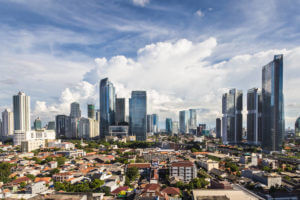On Wednesday, coffee surged on supply fears as excessive heat ravages Brazil, the world’s top producer of the soft commodity.
December arabica coffee futures ended the day 2.47% higher at ¢180.80 per pound on November 15. Moreover, market watchers anticipate a further increase of 0.54% to ¢181.78 per pound in the following market session.
On Monday, Brazilian weather forecaster Climatempo said that temperatures could reach 40.00 degrees Celsius (104.00° F) this week. As a result, concerns that above-average temperatures would damage coffea shrubs supported coffee C prices to a 4-3/4 month high.
In addition, Somar Meteorologia warned of significantly reduced rainfall in many of Brazil’s coffee-growing areas. Last week, the Minas Gerais region received 0.80 mm of rain, which equals just 2.00% of the historical average.
Furthermore, the Vietnamese Ministry of Agriculture and Rural Development revised its coffea bean yield projection downward. Vietnam expects its coffee production for the 2023/24 crop year to fall by -10.00% to 1.66 million metric tons (MMT).
Consequently, Vietnam’s October arabica bean exports shed -14.20% month-over-month and -48.80% year-over-year to 4.37 MMT. Likewise, Vietnamese coffee shipments plunged by -10.70% to 1.30 MMT in the January to October 10-month period.
Moreover, the Intercontinental Exchange (ICE) reported a sharp decrease in its arabica bean inventories. Its arabica bean stockpiles plummeted to a 24-year low of 297,100 bags.
Brazil Endangers Both People and Coffee Crops
Brazil issued red alerts for approximately 3,000 towns and cities nationwide ahead of an unprecedented heatwave. The National Institute of Meteorology expects the hot spell that began on Sunday to last until at least Friday.
In the Brazilian capital of Rio de Janeiro, temperatures hit up to 42.50° C, a record for November. With high humidity supplementing the heat, residents felt they were being grilled under 58.50° C temperatures.
The heatwave threatens more than a hundred million people and arabica trees across Brazil. Some regions have reported significant deaths in coffee crops, especially young plants.
Replacing the dead crops with new seedlings will significantly impact the subsequent few harvests.











